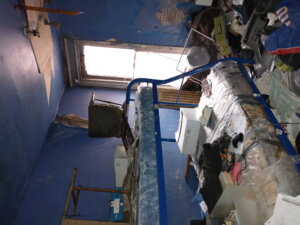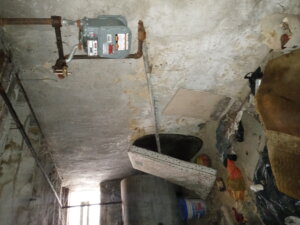A property squatter occupies a house without the owner’s approval and usually without paying rent or other payments. “Squatting” involves living in empty buildings, but squatters may also move into buildings still in use. The laws and consequences of squatting vary widely depending on state or local laws and regulations. In some places, such as Philadelphia, the squatters may gain legal rights to the property if they live in it for a certain amount of time, leading to squatters rights Philadelphia PA. In contrast, others may face near eviction and legal action from the property owner/landlord. This article covers squatters rights Philadelphia PA, and how to remove these people properly.

What Are The Squatters Rights in Philadelphia?
State laws and local ordinances rule property squatting in Philadelphia, Pennsylvania. Currently, squatting is illegal in Pennsylvania because there are no laws protecting squatters in the state. However, landlords must follow eviction laws, which can vary when dealing with squatters.
Philadelphia property owners typically have legal routes to remove squatters through eviction. Authorities give squatters notice to leave. If they do not leave willingly, the court system obtains an eviction order.
Pennsylvania homeowners should talk to legal experts about dealing with squatters, especially in Philadelphia. This will help them understand the laws and procedures and protect their rights as property owners. Landlords in Philadelphia should stop squatters from taking over their property to protect their rights and avoid legal problems.
Adverse Possession Involving Squatters Rights
Adverse possession means claiming ownership of land or property by openly using it for a specific period. They call this period the “statutory period.” During this time, the person must use the land. If the owner does not act to remove the person using the land, they may lose their ownership rights.
This legal concept allows a change in ownership when certain conditions are met. Adverse possession rules vary depending on the location.
One aspect is how long a person must occupy the property. Another aspect analyzes how people use the property. A final aspect is whether the individual claims the property without consent.
In Pennsylvania, the requirements for adverse possession include:
- Actual, exclusive, visible, and continuous possession of the property.
- Possession must be without the permission of the valid owner.
- Possession must be untouched for a statutory period of 21 years.
- The adverse possessor must pay all taxes on the property during the statutory period.
If someone meets these requirements, they may be able to claim ownership of the property through adverse possession laws. The process can be tricky, so it’s important to talk to a lawyer who knows the laws in Pennsylvania. They can help you understand squatters rights Philadelphia PA and handle any legal issues effectively.
Landlords Rights in Philadelphia for Removing Squatter
In Philadelphia, landlords have rights when dealing with squatters, but it can be complicated. They may need to follow specific steps to remove the squatter from the property. Here are some general guidelines for landlords dealing with squatters in Philadelphia:
- Provide notice: Landlords must notify the squatter to vacate the property. This notice should comply with state and local laws, including the Philadelphia Municipal Code. The notice period may vary depending on the circumstances and the type of property involved.
- Eviction process: If the Squatter doesn’t leave after notice, landlords may have to file for eviction in court. To evict someone in Philadelphia, you must file a complaint with the court. You will then need to attend a hearing to obtain an eviction order.
- Prove ownership: Landlords must show their property ownership to the court to proceed with eviction. This typically involves providing papers such as the property deed or lease agreement.
- Landlords in Philadelphia must follow legal procedures for eviction notices. This includes giving proper notice to the squatter, serving court papers, and attending court hearings. Failure to follow these procedures can delay the eviction process or result in dismissal of the case.
- Get legal help: Dealing with squatters can be complicated. Landlords in Philadelphia should consider hiring a lawyer who knows landlord-tenant law. An attorney can guide the eviction process and protect landlords’ rights.
- Attend Court Hearing: The landlord and the squatter will be able to present their case at the eviction hearing. The landlord must prove their property ownership and provide evidence that the squatter is unlawfully occupying the premises.
- If the court rules for the landlord, they will give the squatter an eviction order. The order will require the squatter to leave the property within ten days.
- If a squatter doesn’t leave, the landlord can ask the Philadelphia Sheriff’s Office for help to remove them. The sheriff will set a time for the eviction, during which the squatter must leave.
Landlords must follow all legal procedures and requirements when trying to remove a squatter from their property in Philadelphia. Landlords can benefit from speaking with a lawyer about landlord-tenant law. This can help them understand their rights and responsibilities better when dealing with squatters rights Philadelphia PA. It can also assist them in effectively handling legal issues that may arise.

Understanding PA Squatters Rights Protection
Pennsylvania law helps landlords remove squatters from their property using the “Landlord and Tenant Act” to evict them legally.
- The Pennsylvania “Landlord and Tenant Act” clearly establishes landlords’ and tenants’ rights in the rental agreement. The lease guidelines, security deposit amount, rent increases, house maintenance, and entry rules are all covered in the agreement.
The Landlord and Tenant Act governs the relationship between landlords and tenants. One of the key aspects covered by this act is the guidelines for evictions. Landlords must follow specific steps to evict a tenant, like giving notice and getting a court order if needed. The act also prohibits landlords from discriminating against tenants based on race, gender, or disability.
Another critical aspect of the Landlord and Tenant Act is the provision regarding rental property abandonment. Landlords must secure the property and dispose of any belongings left behind if a tenant abandons it.
The Landlord and Tenant Act ensures that renting is fair and clear for both landlords and tenants. It helps landlords and tenants solve problems like rent increases, repairs, or security deposits. This act outlines the rights of landlords and tenants to make the rental market fair and peaceful.
Do Squatters Rights Philadelphia PA Exist?
If there is a squatter on your house, take swift action to avoid further problems. Squatters can damage your home and stay for a long time because of laws that protect their rights.
The best advice is not to face the squatters yourself. Hiring a squatters rights lawyer to guide you through the legal process is vital.
Next, follow the “Pennsylvania Landlord and Tenant Act’s” guidelines to remove the squatters from your property. Homeowners can protect their house and safely & legally evict squatters by following this process.
If dealing with unpaid squatters is too hard or you need pro help, contact Buying Property 215. We have experience as home buyers and can help homeowners deal with squatters in Philadelphia, Pennsylvania.
